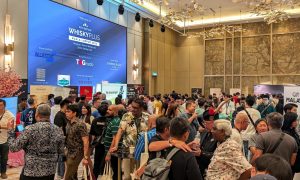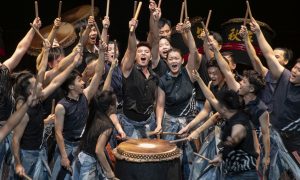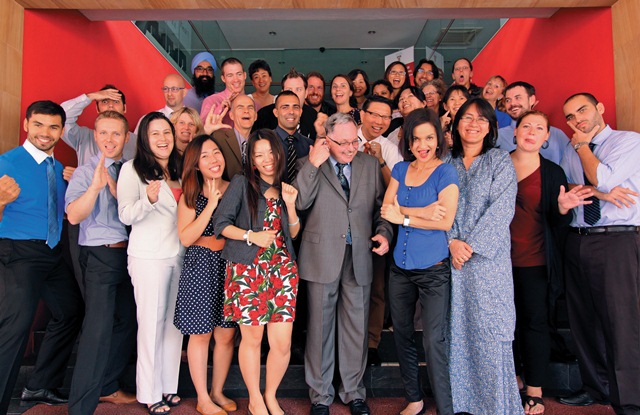
How in the world does a Canadian Programme stay alive for 30 years in a country where A Levels is a household name and Australia only a short flight away? What is about the Ontario approach that has caught the attention of so many students and earned the respect of international experts? The story of Taylor’s Canadian Pre-University Programme (CPU) began thirty years ago, when ten teachers, under the leadership of Stan McFarlane ventured into unknown territory by starting a Canadian school here in Malaysia. Beginning with only 125 students, CPU has grown in numbers and matured into a progressive leader that prides itself on putting students first. Today, the Canadian Programme employs over 30 academics and is a popular choice among young Malaysians preparing to attend some of the best universities in the world.
The dynamic programme has been described as a passport to international education with graduates pursuing degrees in Australia, Canada, Singapore, New Zealand, Hong Kong, Great Britain, and the United States. At heart, CPU is Year 12 in Canada operating as a franchised educational programme of the Ontario Secondary School Diploma offered through Taylor’s College, under the scrutiny of the Ministry of Education in Ontario, Canada. With yearly visits from an Ontario Ministry of Education Inspector, an experienced Canadian Principal, and over 80% Canadian teachers, CPU is the authentic Canadian classroom experience in Malaysia.
The CPU student body consists of SPM leavers, international school graduates, and serious foreign students who have made Malaysia their study destination of choice. Our methodical approach, willingness to adapt, and commitment to students has provided us with the tools to survive and grow in an extremely competitive environment.
More Than Just Results
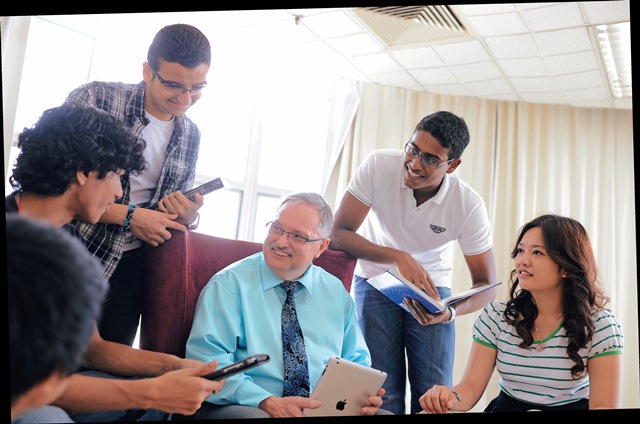
Technology has become more sophisticated and teaching methods more studentcentered but the real appeal of CPU has remained the same over the past 30 years. Ask any CPU graduate and they will tell you that the programme is different from anything else they have ever experienced. Talent shows, musicals, international fieldtrips, and social responsibility projects help to define the essence of holistic education.
When comparing CPU with traditional school models, CPU graduate Rhanessa Kanagarajah explains that “Instead of demanding respect through fear, CPU teachers harbour respect by integrating with the students and understanding their individual needs. Through this behavior, they create a friendship with students, one that goes beyond getting good grades, as letting down a lecturer would be equal to letting down a friend – a notion that weights much more than any passing grade.” As flattering as Rhaneesa’s comments are, they underscore what our teachers value most, the relationship with our students. The close bond between teachers and students is what has kept our programme alive and it is what makes it so difficult to duplicate. Malaysian and international students find acceptance and camaraderie in common goals and unique learning opportunities.
Since 2009, Mr. Gordon Cavanaugh has organized educational fieldtrips to Cambodia, Vietnam, Philippines, Indonesia, and Thailand with the goal of exposing students to the history and culture of Malaysia’s neighbours. Another worthy activity in CPU is the Everyone Has Hope project which is a fund raising and photographic initiative led by CPU students and staff. Everyone Has Hope was the subject of an NTV7 documentary last year.
Great By Design
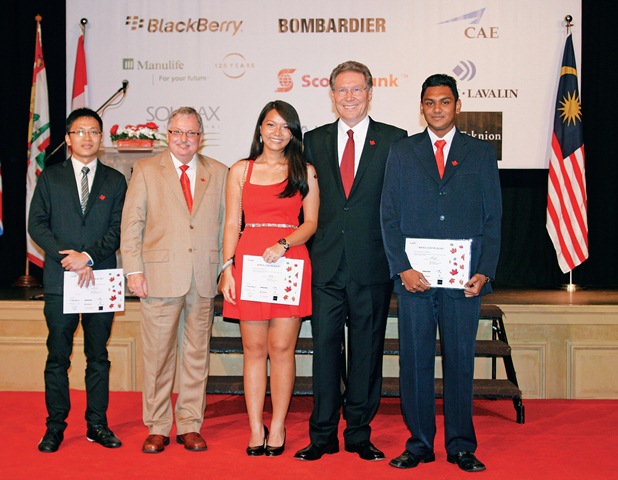
As of January 2013, 8,500 students have graduated from Taylor’s Canadian Programme since its introduction to Malaysia. According to international measures and expert assessment, Ontario has the best school system in the Englishspeaking world (Fullan, 2013, 1). The days of 100% examinations are coming to an end. Knowing that one has passed, or worse failed does not provide students with sufficient information on how to improve for next time. In contrast, the Canadian approach to education recognizes that students get better results with practice. In addition to practice, students require detailed feedback from the teacher. Educationalists refer to this model as formative assessment. Formative assessment is typically divided into three categories: assessment for learning, assessment of learning, and assessment as learning. Assessment for learning is the use of a project or activity to provide feedback during a period of instruction. Assessment of learning is the use of a project or activity to measure, record, and provide a grade report on a student’s level of achievement. Assessment as learning is the use of activities such as self-assessments so that students can reflect on their own learning and take corrective action. This practical approach to learning inspires a good ethic in students and has been instrumental in providing CPU graduates with the skillset to bridge the gap between SPM and university. Students often arrive in CPU without knowing how to conduct research or even write an academic paper. Some new students confess that they have never read a book. Therefore, the culture shock experienced by some students can be significant. We have come to realize that it is far better to experience the growing pains here in Malaysia where there is a support system in place. At CPU, we believe that students must take ownership for their own learning and that with the appropriate skills they will succeed independently. Part of the adaptation is also cultural, putting CPU students at yet another advantage. Over 80% of our teachers are Canadians of different backgrounds with mandatory degrees in education. The cultural and linguistic exposure CPU students receive is essential if students want to succeed academically and socially in a new environment.
The Student Success Initiative
CPU is proud to be leading the Taylors “Learning Revolution” with an exciting learning initiative called “Student Success”! It is the mission of Student Success to ensure that every student at CPU is given the opportunity to thrive in their academic studies. The program is designed to provide one on one tutoring assistance for individuals seeking clarification or assistance in a variety of subjects including English, Science, Mathematics and the Social Sciences. The process is quite simple. Once students have been identified as being “at risk” by their lecturers, they are directed to the Student Success department for additional help. They sign up for 25-minute time slots to get assistance in any subject matter from an experienced and qualified CPU lecturer. Student Success employs the concept of personalized learning whereby the tutor assesses the specific learning styles of the student and then tailors an individualized teaching methodology to those strengths. This ensures the educational growth and advancement of each learner. Almost 75% of CPU student respondents noted that their marks increased by a minimum of 5% after utilizing the academic services provided by the Student Success department.
Furthermore the department utilizes ‘peer tutors’ in order to facilitate learning. Peer tutors are exceptionally beneficial to the program. They not only share their knowledge and assist with the educational development of others but also further cement their own understanding and gain knew knowledge and skills in the realms of communication and leadership. In addition, the program is responsible for implementing exciting education workshops on a variety of educational topics including: The Fundamentals of Essay Writing; How to do Great Oral Presentations; Test and Exam Study Skills as well as a host of ‘soft skill’ workshops comprising topics such as: How to Create a Survey; Time Management Tips and my personal favourite The Art of Note-Taking.
Ultimately the Student Success department believes that no student should fall through the cracks of the education system. Every student is capable and the department strives to unlock the potential within each student with the eventual goal of getting each student into the university of their choice. Failure is not an option.
Source: The Expat December 2013
Read more:
- IGB International School Welcomes Its New Head of School, Mrs Anne Fowles
- Shaping New Worlds by Professional Teachers
- Principal Simon Watson of KTJ Talks to The Expat
What are your thoughts on this article? Let us know by commenting below.No registration needed.



